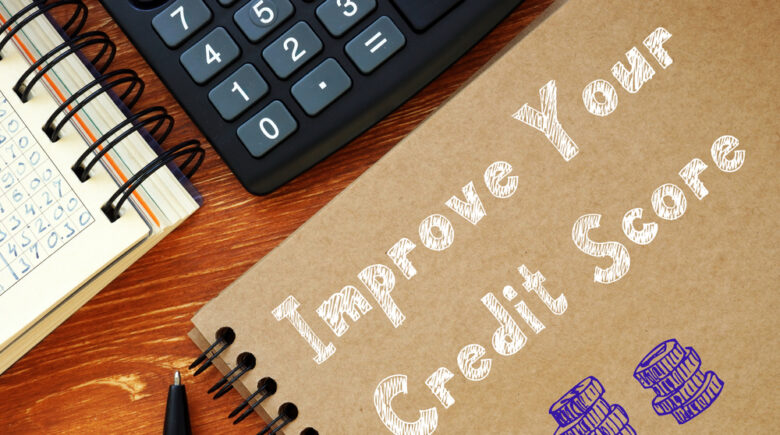Like most Americans, you probably have credit card debt or a credit card that you make payments on every month. However, when your credit card debt increases, it probably means you’re not managing your credit card responsibly. Improving your credit card score is essential if you want to take your credit card use to the next level. According to theCardWeb, a credit card score is a numerical value used to measure credit risk. It’s a tool to help lenders assess your creditworthiness and predict the likelihood of you defaulting on loans, mortgages, or credit cards. If you want to improve your credit card score, here are some simple strategies that you can implement today.
- Pay Down your Revolving Credit Balances
If you’re carrying a balance on your credit card, your credit score will likely suffer. When you pay off the minimum monthly payment on a revolving credit card, such as a CitiBank Visa, you will be paid off sooner than if you continue to pay the full amount each month. The more time between when your payment is made and when that balance is paid in full, the longer it will take to recover your credit card score. If you carry a balance on your credit card, only make the minimum payments each month. The minimum payment is often low enough to where you can afford to pay it off in one or two payments. The most important thing is to pay off your credit card balance as quickly as possible.
- Increase your Credit Limit
If you’re carrying a balance on your credit card, you may be able to increase your credit limit to help with the balance. According to Credit Card Help, the most important thing is that you’re financially responsible enough to pay off the balance in full each month. You can do this by applying for an increase in your credit limit and requesting a new credit card. In addition, you must have made an effort to improve your credit score before trying for an increase in your credit limit. However, if you do qualify for an increase in your credit limit, the bank will likely grant one.
- Check your Credit Report for Errors
If you’re having trouble improving your credit card score, it’s essential to check your credit report for any inaccuracies. If you are having trouble getting a copy of your report, you may be entitled to one under the Fair Credit Reporting Act. Before you file a complaint with the FTC, contact them first and have them assist in resolving any errors on your credit report. Many people assume that only one credit card company can make a mistake on their credit report, but that isn’t always true.
Many different entities can have an error on your credit report. For instance, certain retailers and service providers may be able to place a negative mark on your credit report if you don’t pay them in full for services or goods. Collection agencies and debt collectors can place a negative mark on your credit report because you owe money to them. It’s essential to take action before any errors appear on your credit reports because it will impact your ability to obtain new loans if you need one down the road.
- Ask to have Negative Entries that are Paid Off Removed from Your Credit Report
If you’ve tried to improve your credit score but are having trouble, you may be able to have negative entries that are paid off removed from your credit report. Many companies will mark negative entries with a “paid in full” mark if you pay the creditor for the debt. However, there are many other reasons why specific positive entries can be removed from your credit report. You may need to file a complaint with the FTC if you believe an error has been placed on your credit report because of anything other than a legitimate collection action. Many banks will remove negative entries that are paid off if you ask them to.
- Contact Your Creditors and Explain Your Situation
If you’ve tried to improve your credit score but are having trouble, it’s good to contact the creditors who have placed negative entries on your credit report. You should explain why you are having trouble improving your credit score and ask them to remove the negative entries from your credit report. The creditors may be able to help you remove the negative entries from your credit report or make them less damaging. Many creditors will remove negative entries if they believe they have been placed in error. If they do, they will usually place a note on their reports explaining that the entry was removed because of a mistake.
- Avoid New Credit Card Applications
Credit card applications are a good idea, but only if you know how to manage your credit card debt. Before you apply for a new credit card, make sure that you have a plan to pay off your existing credit cards. If you’re interested in obtaining a new credit card, do some research on the company and the type of rewards program. For instance, if you’re looking at an airline credit card, make sure that there are no annual fees or foreign transaction fees associated with the card.
- Ask for a Lower Interest Rate
If you’re having trouble with your credit score, it’s a good idea to ask the bank charging you interest to lower the interest rate. Consider applying for a secured credit card if you can’t get the bank to lower your interest rate. Secured credit cards offer low or no interest rates on purchases made with the card. You can also use a secured credit card to build up your credit score by paying off your balances each month.
Like most Americans, you probably have credit card debt or a credit card that you make payments on every month. However, when your credit card debt increases, it probably means you’re not managing your credit card responsibly. Improving your credit card score is essential if you want to take your credit card use to the next level. According to theCardWeb, a credit card score is a numerical value used to measure credit risk. It’s a tool to help lenders assess your creditworthiness and predict the likelihood of you defaulting on loans, mortgages, or credit cards. If you want to improve your credit card score, here are some simple strategies that you can implement today.
- Pay Down your Revolving Credit Balances
If you’re carrying a balance on your credit card, your credit score will likely suffer. When you pay off the minimum monthly payment on a revolving credit card, such as a CitiBank Visa, you will be paid off sooner than if you continue to pay the full amount each month. The more time between when your payment is made and when that balance is paid in full, the longer it will take to recover your credit card score. If you carry a balance on your credit card, only make the minimum payments each month. The minimum payment is often low enough to where you can afford to pay it off in one or two payments. The most important thing is to pay off your credit card balance as quickly as possible.
- Increase your Credit Limit
If you’re carrying a balance on your credit card, you may be able to increase your credit limit to help with the balance. According to Credit Card Help, the most important thing is that you’re financially responsible enough to pay off the balance in full each month. You can do this by applying for an increase in your credit limit and requesting a new credit card. In addition, you must have made an effort to improve your credit score before trying for an increase in your credit limit. However, if you do qualify for an increase in your credit limit, the bank will likely grant one.
- Check your Credit Report for Errors
If you’re having trouble improving your credit card score, it’s essential to check your credit report for any inaccuracies. If you are having trouble getting a copy of your report, you may be entitled to one under the Fair Credit Reporting Act. Before you file a complaint with the FTC, contact them first and have them assist in resolving any errors on your credit report. Many people assume that only one credit card company can make a mistake on their credit report, but that isn’t always true.
Many different entities can have an error on your credit report. For instance, certain retailers and service providers may be able to place a negative mark on your credit report if you don’t pay them in full for services or goods. Collection agencies and debt collectors can place a negative mark on your credit report because you owe money to them. It’s essential to take action before any errors appear on your credit reports because it will impact your ability to obtain new loans if you need one down the road.
- Ask to have Negative Entries that are Paid Off Removed from Your Credit Report
If you’ve tried to improve your credit score but are having trouble, you may be able to have negative entries that are paid off removed from your credit report. Many companies will mark negative entries with a “paid in full” mark if you pay the creditor for the debt. However, there are many other reasons why specific positive entries can be removed from your credit report. You may need to file a complaint with the FTC if you believe an error has been placed on your credit report because of anything other than a legitimate collection action. Many banks will remove negative entries that are paid off if you ask them to.
- Contact Your Creditors and Explain Your Situation
If you’ve tried to improve your credit score but are having trouble, it’s good to contact the creditors who have placed negative entries on your credit report. You should explain why you are having trouble improving your credit score and ask them to remove the negative entries from your credit report. The creditors may be able to help you remove the negative entries from your credit report or make them less damaging. Many creditors will remove negative entries if they believe they have been placed in error. If they do, they will usually place a note on their reports explaining that the entry was removed because of a mistake.
- Avoid New Credit Card Applications
Credit card applications are a good idea, but only if you know how to manage your credit card debt. Before you apply for a new credit card, make sure that you have a plan to pay off your existing credit cards. If you’re interested in obtaining a new credit card, do some research on the company and the type of rewards program. For instance, if you’re looking at an airline credit card, make sure that there are no annual fees or foreign transaction fees associated with the card.
- Ask for a Lower Interest Rate
If you’re having trouble with your credit score, it’s a good idea to ask the bank charging you interest to lower the interest rate. Consider applying for a secured credit card if you can’t get the bank to lower your interest rate. Secured credit cards offer low or no interest rates on purchases made with the card. You can also use a secured credit card to build up your credit score by paying off your balances each month.



